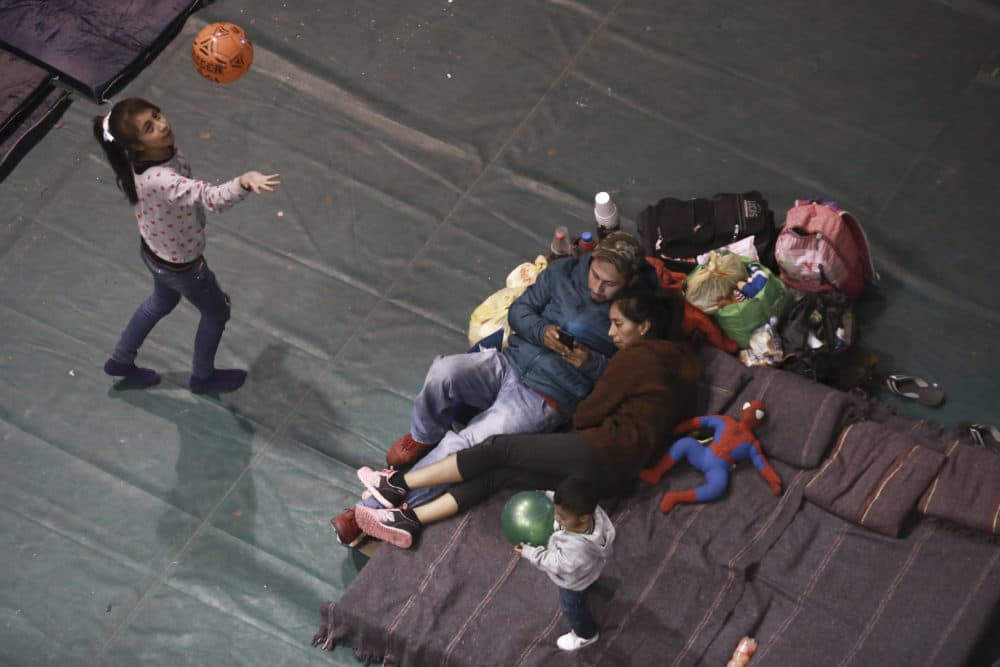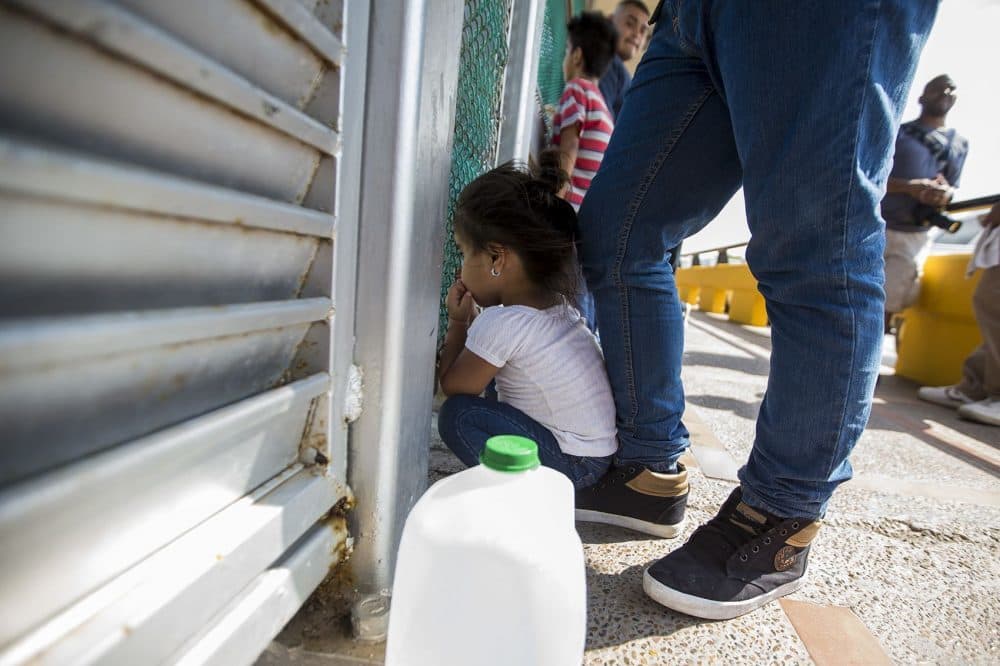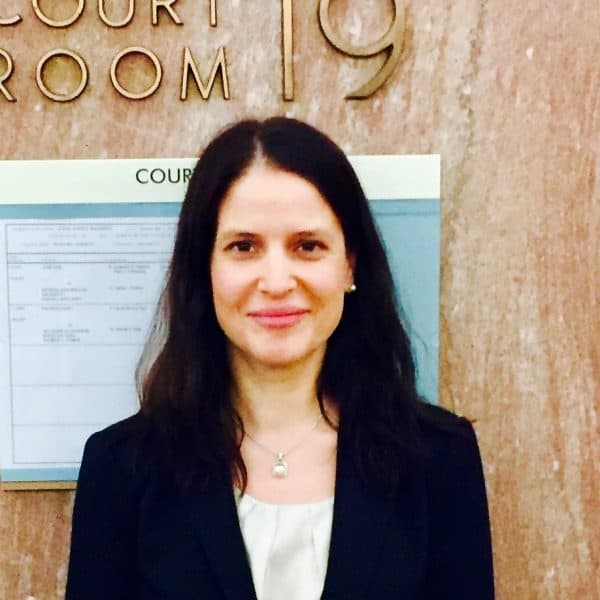Advertisement
Commentary
Is Trump Making It More Difficult For Migrants To Access Legal Services?

As an immigration lawyer, I have long viewed Tijuana, Mexico, as a pitiless last stop for migrants seeking refuge in the United States. A cartel-plagued, homicide-heavy metropolis, Tijuana presents a serious risk of violence to migrants trekking towards one of San Diego’s ports of entry -- which itself often results in arrest or rejection by border officers.
My learned shudder towards Tijuana means I never envisioned the opposite scenario: U.S. citizens being detained and turned away at the Mexican border.
Yet on February 1, 2019, immigration attorney Erika Pinheiro was detained by Mexican authorities while attempting to cross into Tijuana by foot and forced to return to the United States. On the same day, her colleague Nora Phillips was detained in Guadalajara, Mexico, after flying from the United States for vacation. Phillips and her 7-year-old daughter were held for nine hours, without food, before being forced onto a flight back to Los Angeles. News of the attorneys’ removals spread like wildfire through the immigration law community, as their tireless assistance to migrants in Tijuana has lent them an almost folk-hero status.
The MPP has already come under attack for violating U.S. statutes and human rights law ... Discouraging free legal services makes matters worse.
To date, there has been no explanation from either the U.S. or the Mexican government as to what triggered the rejections. Neither attorney has been accused of any legal violation. Thus far, the public is left with no explanation other than the one Mexican officials gave to Phillips and Pinheiro: Interpol flagged their passports.
Accounts from photojournalists working at the border provide some context. The journalists report that Mexican officials have photographed their passports; that Mexico has rejected their entry at both its U.S. and Guatemalan borders; and that some Mexican officials said “the Americans” had directed this treatment.
News coverage is only beginning to plumb these accounts — with the most extensive reporting coming from the Intercept -- and the available information raises more questions than it answers. Is there deliberate coordination between the governments of the United States and Mexico aimed at discouraging the journalists’ work? And if so, who should be held accountable?
It isn’t a stretch to suspect that this suppression is part of the Trump administration’s ongoing attack on the First Amendment. It’s also easy to see how the administration might put Phillips and Pinheiro in the same truth-seeking category as journalists who recorded the tear-gassing of migrants at the U.S. border — and thus, why they met the same fate.
Advertisement

The attorneys are directors at a nonprofit, Al Otro Lado, that sued the Trump administration in 2017 claiming human rights abuses at the border. (The suit remains pending.) In December 2018, Phillips brought members of Congress to a U.S. port of entry so they could observe border agents turning asylum-seekers away. Such endeavors threaten to reveal the administration’s efforts to trample on migrants’ legal rights; and neither was flattering to Trump.
The catch for the Trump administration is that it needs Phillips, Pinheiro and like-minded attorneys for its stated policy to achieve any measure of credibility.
Under the Migrant Protection Protocols (MPP) released by the administration in January — commonly referred to as the “Remain in Mexico” policy — migrants seeking asylum at the U.S. border are returned to Mexico to await their hearings in U.S. immigration court. Homeland Security Secretary Kirstjen Nielsen has made clear that, under the MPP, it is Mexico’s job to ensure that migrants are able to meet with lawyers during the days and months before court appearances.
Although the policy carefully takes the burden off of the United States, if the Trump administration was involved in the immigration attorneys’ banishment from Mexico, this gives the lie to the administration’s already thin claim that the MPP is in migrants’ best interests. Certainly, the administration’s silence on the reason for the expulsions, despite media inquiries -- has the whiff of at least tacit consent.
The MPP has already come under attack for violating U.S. statutes and international human rights law by squelching refugees’ ability to lodge asylum claims. Discouraging free legal services makes matters worse. There have been enough volunteer attorneys flowing to Tijuana to maintain a pretense that lawyers are accessible. But the banishment of Phillips and Pinheiro, who previously led such efforts, is gratuitous enough to blow the MPP’s already flimsy cover.
It is exceedingly difficult to present an asylum claim without legal assistance. Cutting the head off of free legal services that could not meet the need anyhow is unnecessary vindictiveness that may ultimately backfire in current litigation over the MPP's constitutionality.
